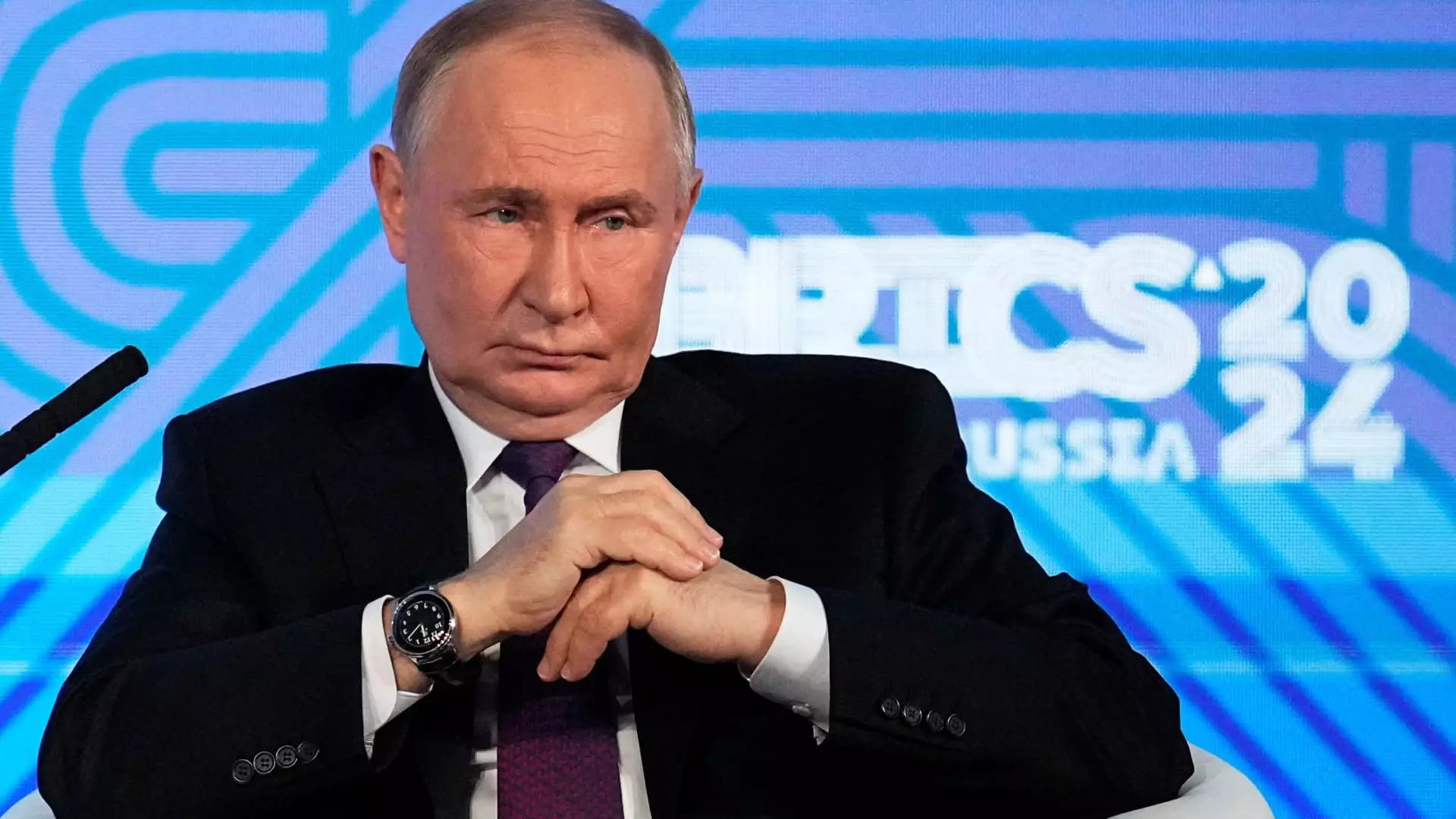In an era dominated by the narratives of Western economic prowess, the BRICS nations—Brazil, Russia, India, China, and South Africa—along with its newer members, such as Egypt, Ethiopia, Iran, and the United Arab Emirates, are poised to carve a significant influence in the global economic forum. As Russian President Vladimir Putin emphasized, these nations are not just surviving but thriving, representing a vibrant zone of growth that is set to challenge the long-standing Western financial order. Putin’s insistence that BRICS countries will yield substantial contributions to global GDP hints at a shift towards a multipolar economic framework, aimed at diminishing the singular dominance of Western economies in world affairs.
This emergent bloc serves not merely as an economic consortium but also as a geopolitical counterbalance to Western influence, particularly in the context of changing global dynamics. The upcoming BRICS summit in Kazan showcases Russia’s aspirations to showcase the unity and negotiating power of these nations. Putin has positioned the grouping as a coalition ready to resist external pressures and to promote a vision of economic sovereignty, free from Western sanctions and interferences. This determination aligns with a growing discontent toward traditional global financial structures, which many believe disproportionately favor Western nations.
With interest expressed by around 30 nations globally to join or collaborate with BRICS, it reflects a burgeoning desire among developing nations for an alternate socio-economic alliance. This potential expansion of BRICS may represent a significant recalibration of international relations, encouraging more diverse voices and interests in the policy-making arena.
An integral part of this shift from Western hegemony is the creation of alternative financial systems that diminish reliance on the U.S. dollar. Putin has discussed ambitious initiatives such as a SWIFT alternative and the collective use of national currencies to facilitate investment within the BRICS framework. The emphasis on national digital currencies highlights an adaptive economic strategy that embraces technology to overcome barriers posed by sanctions and economic disruptions.
The aspirations for a joint cross-border payments system signal profound changes that could revolutionize trading practices among member countries. Furthermore, with the New Development Bank acting as a counterbalance to Western financial institutions, it functions as an incubator for development projects aimed at enhancing infrastructure and technological collaboration among nations in the Global South. The call for investments in e-commerce and artificial intelligence underlines the strategic importance of these sectors in a digitized global economy.
Putin’s vision for BRICS transcends mere economic calculations; it embodies a broader quest for socio-economic resilience among its members. The initiatives outlined, including infrastructure projects alongside transportation megaprojects, underpin the group’s ambition to solidify its standing as a leader in both regional and global trade.
The Arctic Sea Route and the North-to-South corridor represent crucial strategic investments that fortify trade routes between Eurasia and Africa. These ambitious transport projects not only enhance connectivity but also empower BRICS nations to leverage their geographic advantages for economic gain. As Putin articulated, the completion of these infrastructure projects could optimize the movement of goods and bolster economic activities within and beyond the grouping.
The BRICS grouping stands at a pivotal juncture in its evolution. The forthcoming summit in Kazan is poised to lay the groundwork for substantial economic collaboration while signaling a shift toward a more decentralized global economic system. By focusing on mutual development and innovation, BRICS can be a catalyst for significant change in how developing nations engage on the world stage. The ambitions set forth by this coalition, if realized, could herald a new era of cooperation that champions inclusivity, sustainability, and enhanced economic sovereignty. As the world watches, the potential impacts of these initiatives may transcend scientific possibilities and evolve into lasting structural changes in global economic paradigms.



Leave a Reply